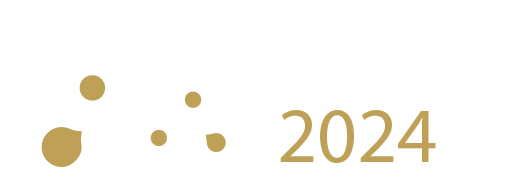Programme
Helene Quie - Conference Chair

Professor Smith has spent 45 years in our industry as a research scientist, strategist and now an academic specialising in how we make and execute strategy. In this opening presentation, he will address four questions:
- What does “strategy” mean in medical device firms?
- Why and how do the strategies of medical device firms differ?
- How does your firm’s strategy impact on the work of clinical development departments?
- What are the three questions clinical development teams should ask their strategy colleagues?

- Importance of traceability and consistency in clinical data journey for medical device development
- Exploration of key aspects including device development, clinical evaluation, trials, and regulatory pathways
- Addressing challenges and strategies for ensuring integrity and reliability of clinical data, covering data identification, collection, documentation, compliance, and benefit-risk assessment

- Regulatory Agencies: Partners, Not Opponents
- Dispelling misconceptions about regulatory agencies
- Emphasizing collaboration and partnership in the regulatory process
- Understanding Regulatory Perspectives
- Exploring regulatory agencies’ objectives
- Discussing strategies to align submission approaches with regulatory expectations
- Effective Document Presentation
- Highlighting the importance of clear communication in submissions
- Sharing best practices for organizing and formatting documents to improve readability and comprehension.
- Highlighting the importance of clear communication in submissions

- Setting the clinical strategy
- Designing the right study for the right development phase
- Using the data gathered from all sources to support regulatory compliance, marketing claims and patient benefit

- When to use surveys for post market data collection
- Rank 4 vs. Rank 8 clinical evidence collected from surveys
- How to achieve Rank 4 for survey data for PMCF
- Best practices in conducting PMCF surveys

- Prioritizing clinical endpoints to address unmet needs
- The importance of evidence-based marketing messages
- Demonstrating market value with clinical endpoints
- Case example: cardiac company


- The excessive time on screening and reviewing
- Responsible AI: credibility and traceability of results
- Significantly reducing time and resources with AI
- Case example: burden of disease analysis
In the realm of evidence assessment in healthcare, the process of screening and reviewing data can often be time-consuming and resource-intensive. This abstract delves into a real-world case study that showcases the transformative impact of artificial intelligence (AI) in expediting evidence assessment while upholding standards of credibility and traceability.
The utilization of AI technology offers a promising solution to address the challenges posed by the cumbersome and labor-intensive nature of evidence assessment. By automating screening processes and streamlining data review tasks, AI presents a novel approach to significantly reduce the time and resources required for evidence assessment, allowing for more efficient decision-making and resource allocation.
Ensuring the responsible implementation of AI is imperative to maintain the credibility and traceability of results generated through automated processes. By adhering to principles of ethical AI design and transparent decision-making algorithms, healthcare organizations can uphold the integrity of their evidence assessment practices while leveraging the efficiencies offered by AI technology.
This abstract will present a compelling case example focusing on the application of AI in burden of disease analysis. Through this case study, attendees will gain valuable insights into the tangible benefits of AI in accelerating evidence assessment processes, promoting responsible AI implementation, and optimizing resource utilization in healthcare decision-making.

- Introduction to Real-World Data (RWD) and Real-World Evidence (RWE)
- Sources of RWD
- The Role of RWE in Healthcare
- Methodologies for Generating RWE
- Case Studies and Applications of RWE
- Challenges in Utilizing RWE Data

- Overview of Risk-Based SDV
- Identifying critical data and processes
- Implementing Risk-Based SDV
The adoption of risk-based source data verification (SDV) in clinical trials, especially under ISO 14155 guidelines for medical devices, is a step towards more efficient and reliable research. This approach focuses on checking data based on the level of risk it poses to the study’s outcomes and patient safety, making it a smart way to ensure data is accurate without wasting resources.
The session explains the basics of risk-based SDV, including how to assess and manage risks and the benefits. These benefits include better data quality, more efficiency, and smarter use of resources, all within the rules set by ISO 14155.
Moving towards risk-based SDV under ISO 14155 guidelines not only fits well with regulatory expectations but also pushes clinical research forward, making it more focused on important data, safer for patients, and more cost-effective. It encourages collaboration among those involved in clinical research to overcome hurdles and fully adopt this approach, leading to wider acceptance and use in studies.

- Criteria for site selection, focusing on infrastructure, patient population, and regulatory environment.
- Strategies to enhance compliance, including training and support
- Tools and technologies for real-time monitoring and risk mitigation.
- The importance of site engagement to boost study participation and completion rates.

- How to prepare and design data collection effectively, with risk management in mind
- How to ensure that datasets and analysis don’t ruin your study results
- How to approach the human factor in data collection plans


- Understanding the MRD essentials and the practical challenges
- Specific National implementation
- How to support sites during the submission process

-
- Significance throughout the device lifecycle
- Implementation for successful investigations and MDR submissions
- Common pitfalls and keys to success

- Benefit and role of Clinical Specialists in high-level regulatory studies.
- The optimization of data collection and data transfer with the support of Clinical Specialists.
- Actionable advice on how to leverage the expertise of Clinical Specialists illustrated with a real-world case study.
Achieving success in high-level regulatory clinical studies demands significant dedication, planning, organization, and effort from all participants. Clinical Specialists play a pivotal role in these challenging projects. While medical device company leadership concentrates on regulatory compliance, Clinical Specialists focus on engaging with the medical staff and facilitating their involvement in the study. These specialists offer crucial strategic guidance and operational support, encompassing strategic project and study planning, training medical personnel, patient screening, and clinical assistance. Furthermore, Clinical Specialists are experts in gathering data and overseeing its transfer among all stakeholders, enhancing efficiency for both the study sites and the sponsor, leading to the successful completion of the study. This presentation will provide actionable advice on leveraging the expertise of Clinical Specialists to enhance your high-level regulatory study, illustrated with a real-world case study.


- Exploration of challenges and uncertainties in conducting clinical investigations involving emergency patients
- Mitigation strategies and learning points to maximize the value of collected data and minimize risks
- Key topics covered include patient selection, ethical considerations, regulatory compliance, logistics, recruitment plans, and effective communication strategies with stakeholders
Navigating clinical investigation involving emergency patients presents unique challenges and
uncertainties, particularly when the potential benefits of the study intervention are not readily
apparent. This presentation delves into the common pitfalls and challenges that you can experience when conducting such studies and offers learning points in mitigating risks and maximizing the value of data collected. Through a combination of case examples and insights, attendees will gain a nuanced understanding of the complexities inherent in working with emergency research in the acute clinical settings. Key topics include patient selection criteria, ethical considerations, regulatory compliance, logistics, recruitment plans and effective communication strategies with stakeholders.
By addressing these challenges head-on and providing practical information, this presentation
equips researchers and clinicians with the knowledge necessary to navigate the complexities of
conducting studies with emergency patients successfully.

- Fundamental Principles of Good Study Design for IVDs under IVDR
- Role of ISO 20916 in IVD planning for IVD performance studies
- Specific considerations for Companion Diagnostic studies

 Pre-Recorded)
Pre-Recorded) 
- What is off-label and compassionate use?
- Why is it important?
- What does MDR and guidance say?
- Why is policy challenging?
- What is needed in Europe, and what is happening?

Two separate sessions will run:
- This session will focus on: a) How can we deal with Black-box AI MDSW, explainability, the principle of the Human-in-the-Loop and the ensuing (legal and other) accountability? b) Is it possible to fully evaluate AI MDSW in the pre-market phase with respect to its full impact on health care providers, patients, and society at large? c) Is there a gap between regulatory and scientific evaluation of AI MDSW, given the need for clinical investigations under the MDR? d) How does the FDA approach compare to the MDR and what can we learn?
- In this workshop we plan to run through clinical evaluation requirements of the MDR from a regulator’s perspective, highlighting the questions that are asked on the regulator’s side when presented with a new submission. The specific focus will be on the clinical evaluation of software. We will discuss some examples and briefly touch on the unique challenges that AI brings to the table before my co-presenter takes a deeper dive into this subject.
The purpose of this workshop is to teach participants how to set up a global study that meets different compliance requirements. Through a combination of collaborative group work, and practical exercises, participants will learn to classify the medical device, determine the appropriate regulatory pathway, and understand which sections of CFR, EU MDR, and ISO 14155 to follow Participants will be divided into two groups to explore key regulatory topics: FDA requirements and EU MDR requirements for a hypothetical new heart implant device, and develop comprehensive compliance strategies, create detailed checklists, address data protection and ethical approvals. This hands-on session will provide valuable insights and equip you with the knowledge and tools needed to successfully manage global clinical trials.
Conducted by Maria Nyåkern and Eva Dahlberg

